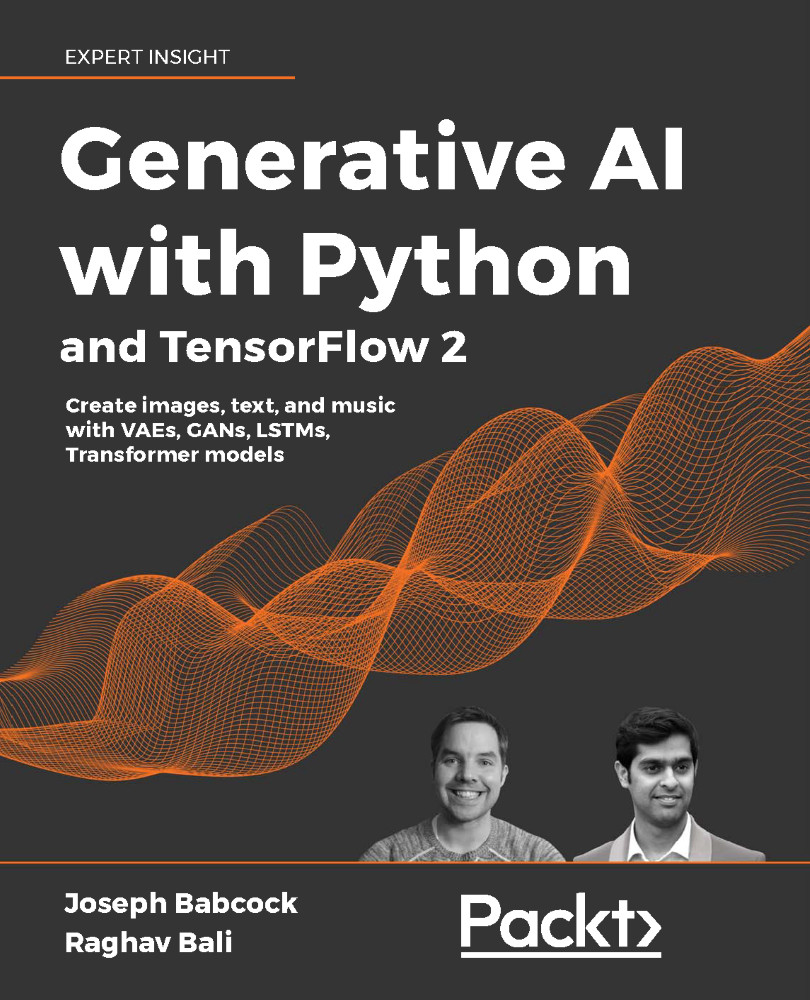Generative adversarial networks
GANs have a pretty interesting origin story. It all began as a discussion/argument in a bar with Ian Goodfellow and friends discussing work related to generating data using neural networks. The argument ended with everyone downplaying each other's methods. Goodfellow went back home and coded the first version of what we now call a GAN. To his amazement, the code worked on the first try. A more verbose description of the chain of events was shared by Goodfellow himself in an interview with Wired magazine.
As mentioned, GANs are implicit density functions that sample directly from the underlying distribution. They do this by defining a two-player game of adversaries. The adversaries compete against each other under well-defined reward functions and each player tries to maximize its rewards. Without going into the details of game theory, the framework can be explained as follows.
The discriminator model
This model represents a differentiable...












































































